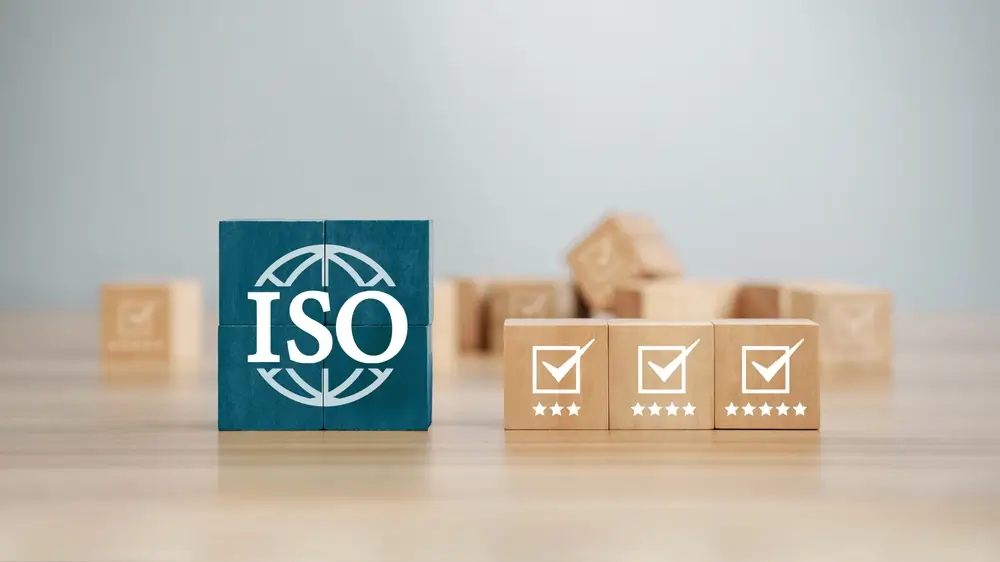ISO 9001:2015 Is It a Legal Requirement?
ISO 9001:2015 is one of the world’s most recognized quality management standards. It helps organizations build reliable systems, improve consistency, and meet customer expectations. But a common question still comes up: Is ISO 9001 legally required?
What Is ISO 9001:2015?
ISO 9001:2015 is the latest version of the ISO 9001 standard, created by the International Organization for Standardization. It focuses on building a Quality Management System (QMS), a structured way to manage quality across products, services, and processes.
- Meeting customer and regulatory requirements
- Preventing mistakes and defects
- Improving internal systems
- Promoting risk-based thinking and continuous improvement
Is ISO 9001 a Legal Requirement?
In most industries, ISO 9001 is voluntary. There is no law that says a company must be certified under ISO 9001:2015 to operate.
However, that doesn’t mean it’s never required. In some cases, the need for ISO 9001 comes from:
- Contract requirements
- Supplier selection criteria
- Industry reputation
- Regulatory overlap in certain sectors
When ISO 9001 Becomes Mandatory
Government Contracts
In many countries, government agencies require ISO 9001 certification to work with certain vendors. For example:
- U.S. Department of Defense (DoD): Often expects suppliers to be ISO 9001 certified for consistency and risk management.
- European Union Projects: Many public contracts within the EU request ISO 9001 certification during vendor qualification.
In these cases, ISO 9001 is not required by law, but it is required to get the job, making it a practical necessity.
Industry-Specific Regulations
Some regulated industries expect ISO 9001-based systems as part of their compliance framework, including:
- Aerospace: AS9100 is based on ISO 9001 and is often required for aviation manufacturers and suppliers.
- Automotive: IATF 16949, a global auto quality standard, is built on ISO 9001 principles.
- Medical Devices: ISO 13485 (for medical devices) follows the structure of ISO 9001 but includes more risk control and regulatory focus.
Client or Market Expectations
In competitive industries, some large buyers require their suppliers to be ISO 9001 certified. It may not be the law, but it’s a condition for doing business.
ISO 9001 vs Legal Compliance
It’s important to understand that ISO 9001 does not replace legal or regulatory obligations. Instead, it helps companies build systems that make legal compliance easier.
- ISO 9001 requires you to track applicable laws
- It promotes documentation of processes and controls
- It helps identify risks before they turn into violations
Benefits of ISO 9001 Even When Not Required
- Fewer errors and defects
- Clear roles and responsibilities
- Better customer service
- Higher efficiency and productivity
- Improved employee training and documentation
What Happens If You’re Not Certified?
If ISO 9001 is not required by law or contract, nothing happens legally if you don’t adopt it. However, some consequences could include:
- Missing out on bids for major contracts
- Losing clients who demand quality certification
- Fewer opportunities for international trade
- Weaker process controls and quality outcomes
Alternatives to Certification
If full certification seems too expensive or complex, companies can still follow ISO 9001 principles internally without getting certified.
Steps you can take:
- Create basic quality procedures
- Document key processes and responsibilities
- Review customer complaints and take action
- Track and improve performance regularly
- Conduct internal audits for quality checks
Common Misconceptions
- “If I follow ISO 9001, I don’t need to follow local laws.” Not true. ISO 9001 supports compliance but never replaces legal obligations. You must still follow all laws and regulations in your country or industry.
- “ISO certification guarantees product quality.” ISO 9001 focuses on managing the process, not promising perfect results. It reduces risk and builds consistency, but doesn't promise zero mistakes.
- “ISO 9001 is only for big companies.” Wrong again. Thousands of small businesses use ISO 9001 to improve efficiency, win contracts, and manage growth.
Conclusion
ISO 9001:2015 is not a legal requirement for most businesses, but it plays a powerful role in contract success, industry readiness, and operational control. In certain sectors, such as defense, aerospace, or medical devices. It can become a practical or contractual requirement.
Whether you choose to get certified or follow ISO 9001 principles internally, it’s a smart way to build better systems, reduce errors, and meet customer needs. Think of it not as a legal checkbox, but as a roadmap to stronger quality and smoother operations.



